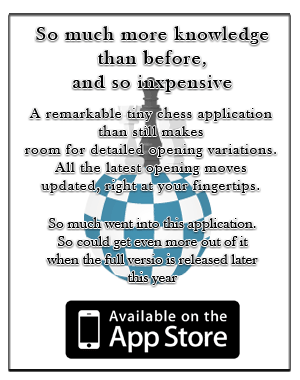ADJOURNMENT
Adjournment of tournament games is performed at the expiry of time assigned for play, if the game is not finished. On adjournment, the player holding the last move does not play it on board but writes it down on his scoresheet, which should be sealed and kept by the arbiter until the resumption of game. The idea behind this procedure is to ensure that the player making the last move on resumption has no disadvantage vis a vis his opponent who does not depend on time in analyzing the position. First introduced in 1878, this practice was adopted by FIDE in the Laws of Chess where it was laid out in detail. For date and time of continuation often have to be agreed upon by the opponents, it may lead to superfluous elongation of tournaments or matches. Organizers usually try to avoid such situations by forcing contenders to play a certain number of moves within a certain period of time (e.g. 40 moves per 2 hours followed by 20 moves per 1 hour). With the recent introduction of the electronic chess clock, set up to add some time (e.g. 30 seconds), per move (formally to allow players to put down their moves), it becomes practically impossible to create a situation where an adjournment is required.



